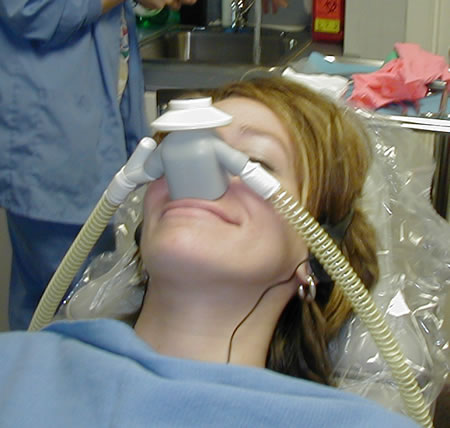A pilot study conducted at Washington University School of Medicine has shown that nitrous oxide, or the “laughing gas” (N2O), can be used to treat severe depression cases which do not respond to conventional treatments.
In the study presented at the annual meeting of American College of Neuropsychopharmacology and published in Journal of Biological Psychiatry on December 9, 20 patients who did nor respond positively to standard treatments were subjected to consecutive treatment sessions, first with a nitrous oxide solution, and then with a placebo solution not containing N2O. Neither the patients, nor the researchers were informed of the order of the sessions. For the authentic treatment, a mixture of gas composed of half oxygen and half nitrous oxide – routinely given by dentists to calm their patients – was used. In the subsequent session, the patients were given a placebo mixture of nitrogen and oxygen like the air we normally inhale.
After each session, the subjects were examined for symptoms of depression such as sadness, sense of guilt, anxiety, insomnia and suicidal thoughts, first two hours later, and then a day after.
A day after the session in which nitrous oxide was used, seven of the patients reported slight, and seven others reported marked reductions in the severity of the symptoms. Three patients reported almost total recovery. There were no reports of worsened symptoms. A day after the placebo session, five patients felt slight, and two others strong improvement, while another reported exacerbated symptoms.
Although cautioning that the experiment was done with a limited number of patients and a short time span and that the results have to reproduced, researchers from the university’s Anasthesiology and Psychiatry Department say it, nevertheless, had yielded promising results. According to the team, laughing gas can be used, at the very least, as an emergency measure to gain time for more effective treatments in severe cases or depression, for instance, as an urgent step to prevent suicides.
An advantage of the method is described as the rapid manifestation of effects, whereas commonly-used drugs like Prozac, Zoloft or Lexapro take days to weeks to show their effects. Another plus for the laughing gas is seen as its limited side effects and its quick discharge from the body after inhalation.
REFERENCES
- 1. “Laughing gas studied as depression treatment”, Washington University School of Medicine, 9 December 2014

